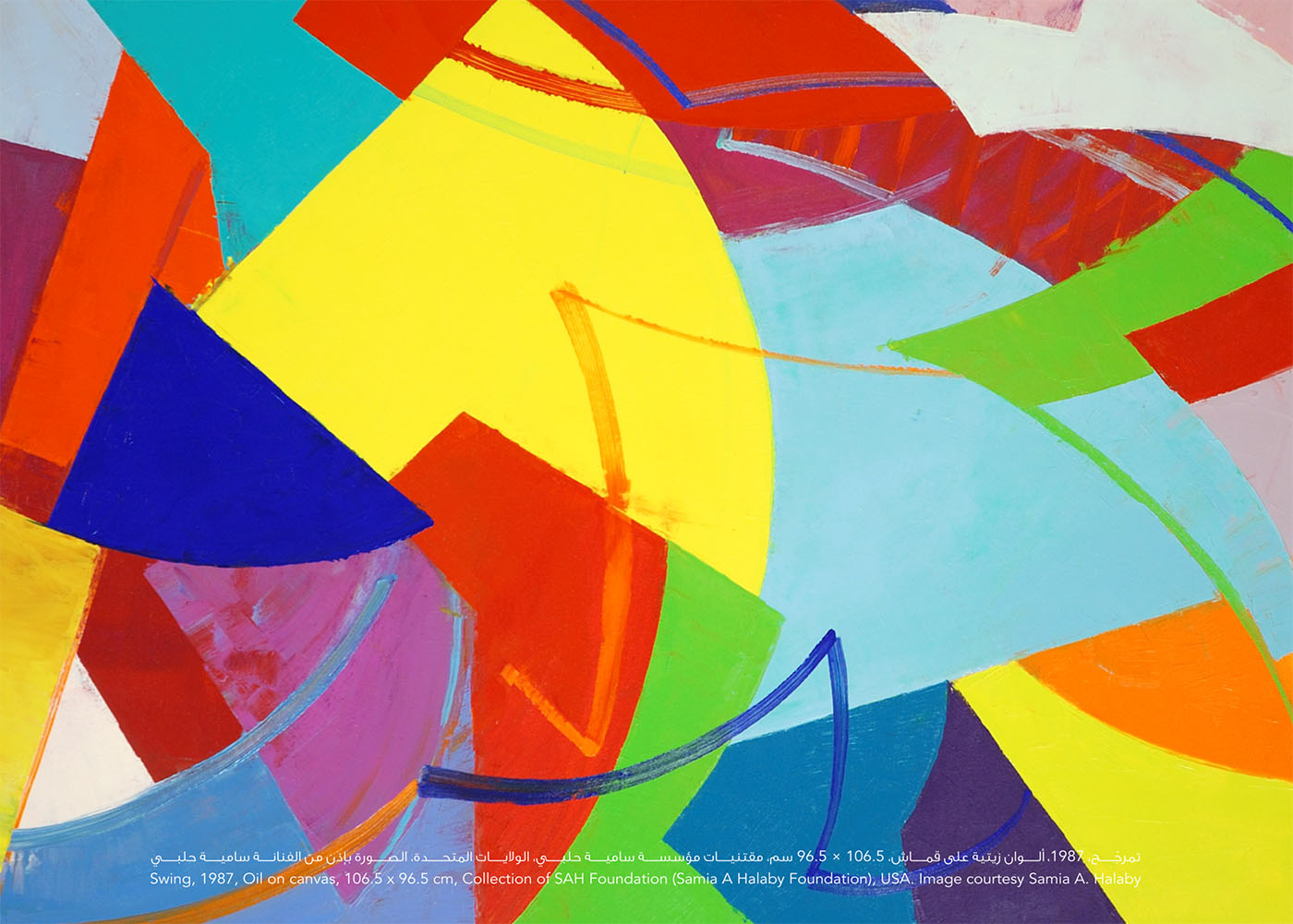Film: Our River, Our Sky
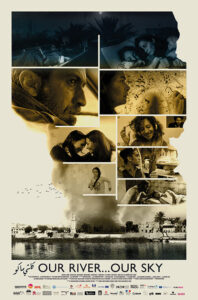 Oct 30 — London more info
Oct 30 — London more info
Rich Mix in London is showing a film that offers a glance at the realities of ordinary life in Baghdad during the US invasion. Our River, Our Sky follows the story of Sara, a single mother and novelist. Through the chaos and destruction, the residents never let their ambitions and desires for the future fade. Yet, they can’t help but contemplate leaving Iraq, and are forced to ask a painful question — to whom does Baghdad really belong?
The film is in Arabic with English subtitles and the screening is followed by a Q&A, conducted by curator and producer Gareth Evans, with the film’s director, Maysoon Pachachi — who in the past has not only filmed a documentary in Gaza, but also taught filmmaking there.
Sharjah International Book Fair: We Speak Books
Nov. 1- 12, Sharjah more info
This event is one of the world’s largest book fairs, held at the Sharjah Expo Centre every year. The 11-day fair has over 400 literary events, including daily writing workshops, poetry readings and book signings. This edition’s country of honor will be Korea.
Lasting Impressions: Samia Halaby
Ongoing — Jan. 7, Sharjah more info
This exhibition presents a framework of Palestinian American artist Samia Halaby’s art and practice, highlighting 180 works from her journey as an artist and a scholar, starting with the earlier works from the ‘60s, to the latest computer-based art work. With a career spanning over six decades, she is considered one of the pioneer abstract artists in the Arab world.
The exhibition is part of the Lasting Impressions series, held annually at the Sharjah Art Museum. The aim is to focus on prominent Arab artists who had a prolific career and left a lasting impression on the development and evolution of modern art in the Arab world.
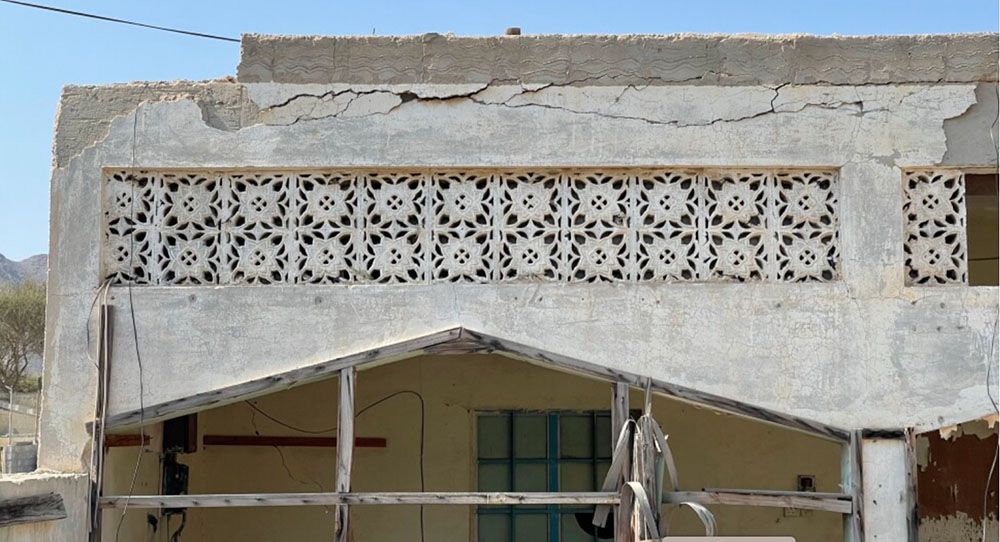
Asma Belhamar: Solid Void Exhibition
Ongoing — Dec 31, Abu Dhabi more info
In this solo exhibition, artist Asma Belhamar presents a major body of work inspired by the UAE’s architectural history. The exhibition is footnoted by the artist’s reflections on culture and national identity in flux.
The exhibition narrates the topographic evolution of the UAE, as influenced by Western classical modernity, contemporary traditionalism in Islam, and the historic trade relationships that shaped much of that landscape. The artist’s deft interpretation reveals the diversity and fragmentation of the design sensibilities that have made the nation’s aesthetic identity what it is today.
New Books to Sink Your Teeth into!
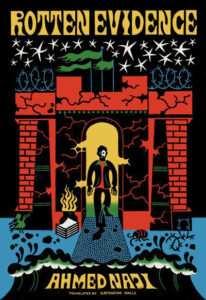
Rotten Evidence: reading and writing in an Egyptian prison by Ahmed Naji, trans. by Katharine Halls (Oct 2023, McSweeney).
In February 2016, Ahmed Naji was sentenced to two years in prison for “violating public decency,” after an excerpt of his novel Using Life reportedly caused a reader to experience heart palpitations. Naji ultimately served ten months of that sentence, in a group cellblock in Cairo’s Tora Prison. Rotten Evidence is a chronicle of those months. (Naji is a TMR contributor.)
Shadow of the Sun by Talib AlRefai, trans. from the Arabic by Nashwa Naserldin (Oct. 2023, Banipal Books).
The Shadow of the Sun — Talib AlRefai’s debut novel published in 1988 — exposes the reality of life for the country’s migrant construction workers in Kuwait, a theme not often dealt with in Arab literature. “Almost a historical document on my life and the lives of the workers with whom I lived for fifteen years, Shadow of the Sun presents a human landscape set in and reflecting Kuwait,” the author writes. Read an extract here.
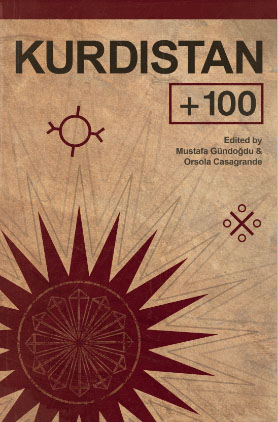
Kurdistan + 100 poses a question to contemporary Kurdish writers: Might the Kurds one day have a country to call their own? With 13 stories all set in the year 2046 – exactly a century after the first glimmer of Kurdish independence, the short-lived Republic of Mahabad – this book offers a space for new expressions and new possibilities in the ongoing struggle for self-determination.
Throughout the 20th century, and so far in the 21st, the Kurds have been repeatedly betrayed, suppressed, and stripped of their basic rights (from citizenship to the freedom to speak their own language), seeing their political aspirations crushed at every turn.
In this groundbreaking anthology, Kurdish authors (including several present and former political prisoners) imagine a freer future, one in which it is no longer effectively illegal to be a Kurd. From future eco-activism, to drone warfare, to the reanimation of victims of past massacres, these stories explore the present struggles through the prism of futurism to dazzling effect.
Watch for TMR’s review of this title in November.
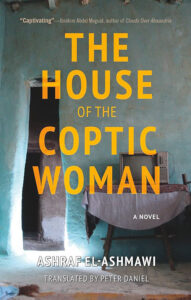 The House of the Coptic Woman by Ashraf El-Ashmawy, translated from the Arabic by Peter Daniel (Oct. 2023, AUC Press).
The House of the Coptic Woman by Ashraf El-Ashmawy, translated from the Arabic by Peter Daniel (Oct. 2023, AUC Press).
Tightly plotted and taboo-breaking, this explosive story takes readers to the roots of religious strife where the smallest of sparks can start a bonfire. With its echoes of Tawfiq al-Hakim’s Diary of a Country Prosecutor (Saqi Books, 2023), this is a powerful and personal tale of conflict, crime, and upheaval in rural Egypt.
Nader, an idealistic public prosecutor at the outset of his career, leaves Cairo to start a new posting in rural upper Egypt. On his first night, a mysterious woman named Hoda shows up at his lodgings. She is on the run from an abusive husband and, harboring a dark secret, seeks a new start in this small village and hopes to escape her harrowing past.
Cairo Securitized: Reconceiving Urban Justice and Social Resilience edited by Paul Amar, (Nov 2023, AUC Press)
By tackling a range of issues, including public health, transportation, labor safety, and housing and property distribution, Cairo Securitized unsettles simplistic binaries of thug and police, public versus private, and slum versus enclave, and proposes compelling new ways in which securitizing processes can be reversed, reengineered, and replaced with a participatory and equitable urban order.



